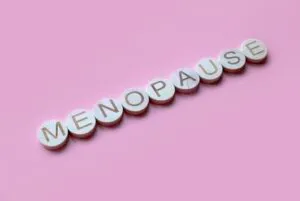 Your daily jolt of java keeps you functioning as you work, drop the kids off at school and hit the gym. Unfortunately, there’s a limit to how much caffeine you should consume each day, and exceeding that limit can negatively impact your health. Caffeine is found naturally in tea, coffee and chocolate, but it’s also an added ingredient in sodas and energy drinks. The more you consume, the higher your chances are of developing problems. How much caffeine should you have each day? The answer depends on you.
Your daily jolt of java keeps you functioning as you work, drop the kids off at school and hit the gym. Unfortunately, there’s a limit to how much caffeine you should consume each day, and exceeding that limit can negatively impact your health. Caffeine is found naturally in tea, coffee and chocolate, but it’s also an added ingredient in sodas and energy drinks. The more you consume, the higher your chances are of developing problems. How much caffeine should you have each day? The answer depends on you.
Healthy Daily Dose
Caffeine energizes most people, it’s safe in moderation and it offers positive health benefits when consumed as part of a nutritious diet. Healthy adults can consume up to about 400 milligrams of caffeine per day. That equates to:
- About 10, 12-oz. cans of cola
- Slightly over five shots of espresso
- Four cups of brewed black coffee
- Two shot-style energy drinks
The amount of caffeine in certain foods and beverages isn’t standard, so read labels carefully if you want to get a better idea of how much you’re drinking. You should also limit how much caffeine you drink in one sitting. For healthy adults, you can drink up to 200 mg of caffeine at once if you’re exercising right after.
Too Much for Some
The above guidelines are for healthy men and women. People with medical problems and risk factors, children and pregnant women should limit or avoid caffeine altogether. Even some otherwise healthy adults find that small amounts of caffeine cause unpleasant symptoms, such as a racing or erratic heartbeat, chills, a shaky feeling or diarrhea. Here are a few guidelines for limiting caffeine intake:
- Children under 12 should not consume caffeine regularly.
- Starting at age 4, children can have small amounts of caffeine, around 45 mg per day, but parents should avoid making caffeine a daily part of their child’s diet.
- Between ages 13 and 18, teenagers can have up to about 100 mg per day of caffeine.
- Diabetics, people with heart conditions and pregnant women can safely consume up to about 200 mg of caffeine per day, but people in these groups should try to avoid caffeine if possible.
There’s no research linking caffeine consumption with increased risk for people with heart problems, such as arrhythmia or heart disease, but because caffeine is a stimulant that increases the heart rate, it’s best to limit caffeine if you have heart problems. You’re actually less likely to develop type 2 diabetes if you consume caffeine regularly, but if you already have type 2 diabetes, then you should limit caffeine intake to avoid damaging glucose metabolism.
For some, any amount of caffeine should be avoided if it causes side effects. These can include migraines and headaches, restlessness, irritability, insomnia, muscle tremors and frequent urination, among others. If you drink a lot of coffee or eat too much chocolate, try cutting back to see if it improves your symptoms. Otherwise, discuss with your doctor an appropriate amount of caffeine to avoid long-term problems.
Sources:
https://www.caffeineinformer.com/caffeine-safe-limits
https://www.mayoclinic.org/healthy-lifestyle/nutrition-and-healthy-eating/in-depth/caffeine/art-20045678





